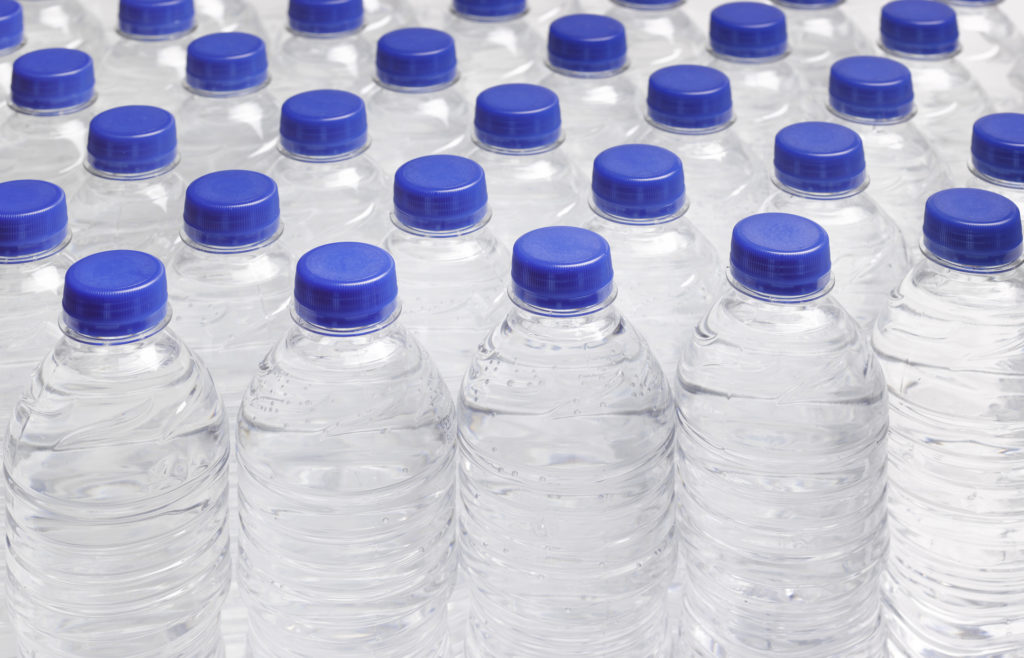
Full frame of still water bottles in rows
CEBU CITY, Philippines — Summer’s scorching heat is tough, but are you paying too much for bottled water?
The Department of Trade and Industry (DTI) cautions consumers to watch out for inflated prices when purchasing bottled water.
Ines Cajegas, chief trade industry development specialist of the Consumer Protection Division of DTI Cebu Province, stresses the importance of monitoring prices to ensure they stay within the suggested retail price (SRP).
When buying bottled water from vendors outside restaurants, it’s often sold for P15 for a 500mL bottle.
However, paying more than P15 at a restaurant is considered fair. For instance, a doughnut shop may sell bottled water for P45
“Matinga ka sa ilahang bottled of water cost P45 when you can buy an ordinary 500mL for P15 to P20. Why? Because if you need the label, it is done by a social organization, non-profit foundation and ang purpose is to put up schools, naa ra didto gibutang asa ang proceeds,” said Cajegas.
She added that this meant that the company or the shop just adhered to the corporate social responsibility (CSR).
According to Investopedia, social responsibility implies that in addition to maximizing profits for shareholders, companies should conduct their operations in a manner that positively impacts society.
“Meaning to say, if they are selling it regularly, as an add on to the service water, then they can charge higher, especially if it’s for social enterprise nga naay donation,” Cajegas said.
READ: Dry spell hits: Cebuanos urged to save water
Sellers warned
If you’re unsure about the price of bottled water, especially if it seems too high, just keep the receipt and reach out to DTI Cebu. They’ll investigate and resolve the issue.
DTI Central Office has also cautioned businesses, especially retailers in bus terminals, to follow the SRP for bottled water.
According to DTI, DTI-Consumer Protection Group (CPG) Undersecretary, Lawyer Teodoro Pascua, urged the retailers and other business establishments “not to take advantage of the consuming public’s thirst for drinking water due to warm and dry weather.”
This came after Pascua and DTI’s Fair Trade Enforcement Bureau (FTEB) monitored 13 stalls in Cubao, Quezon City and found out that 11 of the 13 stalls were non-compliant to the Price Act last April 11.
“One stall sold bottled water at a price grossly excessive of its true worth, while 10 stalls sold bottled water without a price tag,” the DTI said.
Pascua said that under the Department Administrative Order (DAO) 6, Series of 2007, violators of the Price Act will pay from P20,000 to P1 million, “depending on the firm’s capitalization.”
Cajegas shared data with CDN Digital showing that a 500mL Nature Spring bottle costs P9.90, and a one-liter bottle costs P15.40. Meanwhile, a 500mL Wilkins Pure bottle is priced at P11, and a one-liter bottle is P18.
Use of reusable bottles
The Department of Environment and Natural Resources in Central Visayas (DENR-7) reminded consumers to properly dispose of plastic bottles and urged them to avoid single-use plastic water bottles.
They recommend using reusable bottles to help reduce pollution.
On Earth Day last April 22, DENR Secretary Maria Antonia Yulo Loyzaga called for action against plastic pollution in the Philippines.
Loyzaga said that the country is “literally swimming” in plastics.
“It is our choice to act today or let our plastic waste determine our tomorrow,” she said.
She added that the country “produces around 2.7 million tons of plastic waste each year.”
She said that majority of plastic waste goes to landfills, dumps, rivers, and water systems, with around 20 percent ultimately reaching the oceans.
“When the rains come, we are literally swimming in them,” Loyzaga said.
Furthermore, the Environment Secretary said that the fight against l plastic pollution requires a “whole-of-society” approach, saying that “the government and the corporations cannot do it alone.”
Loyzaga added that “sustainable and affordable alternatives must be found along with changes in production and consumption.” | with reports from Russel Loreto, Inquirer.net
/clorenciana